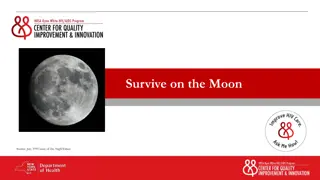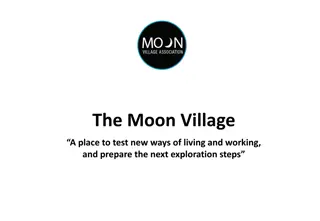
Housing Co-ops: An Alternative Model for Community Living
Discover the concept and advantages of housing cooperatives, where residents collectively own and manage properties for their mutual benefit. Explore the cooperative principles, how residents participate in decision-making, and the financial and community advantages of co-op living.
Download Presentation

Please find below an Image/Link to download the presentation.
The content on the website is provided AS IS for your information and personal use only. It may not be sold, licensed, or shared on other websites without obtaining consent from the author. If you encounter any issues during the download, it is possible that the publisher has removed the file from their server.
You are allowed to download the files provided on this website for personal or commercial use, subject to the condition that they are used lawfully. All files are the property of their respective owners.
The content on the website is provided AS IS for your information and personal use only. It may not be sold, licensed, or shared on other websites without obtaining consent from the author.
E N D
Presentation Transcript
Moon Housing Co-op
What is a co-operative? A cooperative ( coop ) or co- operative ( co-op ) autonomous association of people who voluntarily cooperate for their mutual social, economic, and cultural benefit. Cooperatives include non-profit community organizations businesses that are owned and managed by the people who use their services cooperative) or by the people who work there (a worker cooperative) or by the people who live there (a housing cooperative). (Wiki) The Seven Co-operative Principles: is an 1.Voluntary and Open Membership 2.Democratic Member Control 3.Member Economic Participation 4.Autonomy and Independence 5.Education, Training and Information 6.Co-operation Among Co- operatives 7.Concern for Community and (a consumer
What is a housing co-op? Alternative model of housing Non-profit, but not private home ownership Renting without landlords or agents or: residents of the co-op are their own landlord and agent Housing is owned by and managed by and for the benefit of its residents There are hundreds of housing co-ops in London. In South-East London these include Sanford Street Housing Co-op, Nettleton Road Housing Co-op and Deptford Housing Co-op.
More specifically A group of people come together to form an organisation, the co-op, and the co-op raises money, gets loans and obtains or builds a group of homes The co-op then owns and manages the homes The co-op is made up of all the current residents of the homes (i.e. all residents are members) Residents pay their rent to the co-op (i.e. to themselves as a group), which goes towards e.g. upkeep of the housing and paying off the co-op s original loans
Residents, as members, take part in decision- making about the housing (incl. co-op finances and setting the rent level, maintenance, creating new amenities, residents) Residents can come and go. When a resident moves in they become a member of the co-op, and when they leave they cease to be a member of the co-op. Does not need to be just housing! We can introduce shared space, public facilities (e.g. a social centre, pubic caf etc.) workspace, a workshop, and even (businesses running on the site) incoming/outgoing commercial tenants
Advantages of Co-op Living: Financial: rent can be much cheaper as we set the level ourselves and no one is taking a profit from the housing, particularly once the original loans start to be paid off and the co-op has built up some reserves (e.g. rent in the nearby Sanford Housing Co-op is about 310 per month including all bills) Agency over your own home: residents collectively make decisions about how to manage the properties Security: as you are, collectively, your own landlord, you can provide yourself with housing security without the worry that a landlord will kick you out of the property at any time Community: as you are managing your home together, living in a co-op provides a sense of community and a combats isolation
Disadvantages? You might need to put time and effort into managing your housing collectively with other residents, which may not be for everyone Setting up a new co-op is not easy and will take time and work. But we think it will be worth it.
Moon: Who are we? We are a group of SE London residents setting up a new housing co-op in the area. Working together with CASH, a local Community Land Trust (CLT) that assists with the formation of new co-ops. We want to create more (and more and more) co- operative housing because we think it s great! Waiting lists in existing co-ops are very long. We want to create housing that suits our needs as a group, e.g. open to families and pets, and suitable as the kind of long-term home we want to live in.
How do we do it? decision-making constitutionbank account 3. Research our preferred legal/financial model 2. Set up group logistics/formalities 4. Search for an appropriate site 1. Form a group Continual: figuring out what we want from our housing, getting advice from other co-ops and groups, outreach 6. Development plan, financial and business plan 8. Site purchase, then building or refurb! 7. Fundraise (mortgage, loans, community shares/donations) 5. Register with the FCA
Moon started meeting in Feb 2023, regular monthly meetings ongoing Created a constitution and roles (chair, secretary, treasurer, etc.) Ongoing discussion and research within the group on what we want from our housing (e.g. through sign up questionnaire) Established decision-making methods and started working groups for specific tasks Set up a shared digital cloud to collaborate + a website (and now an insta) Researched appropriate legal and governance forms Ongoing training and advice from other co-ops and groups Ongoing outreach Ongoing site searching, including through the Council and CASH
Moon working groups Finance Site search Legal and governance Outreach Business planning
What next? Expand the group Solidify our values and preferences, our vision of what we want from the co-op Continue to work with the Council and CASH to site search and explore options that come up Approach Catalyst for a quote and raise money for their legal support (incl. managing our FCA registration)
How to get involved 1. Sign-up questionnaire: https://cloud.ldn.cash/apps/forms/s/85JmDdeRNQHXb5k mMiAMzdJ8 2. Signal group chat we can add you! (like Whatsapp questionnaire asks for phone number which we can use to add you) 3. Attend monthly meetings (shared in chat) 4. Join a working group 5. NextCloud Szczepan will help get you set up!

![Read⚡ebook✔[PDF] Io After Galileo: A New View of Jupiter's Volcanic Moon (Sprin](/thumb/21612/read-ebook-pdf-io-after-galileo-a-new-view-of-jupiter-s-volcanic-moon-sprin.jpg)

![get⚡[PDF]❤ Building Habitats on the Moon: Engineering Approaches to Lunar Settle](/thumb/21624/get-pdf-building-habitats-on-the-moon-engineering-approaches-to-lunar-settle.jpg)


















